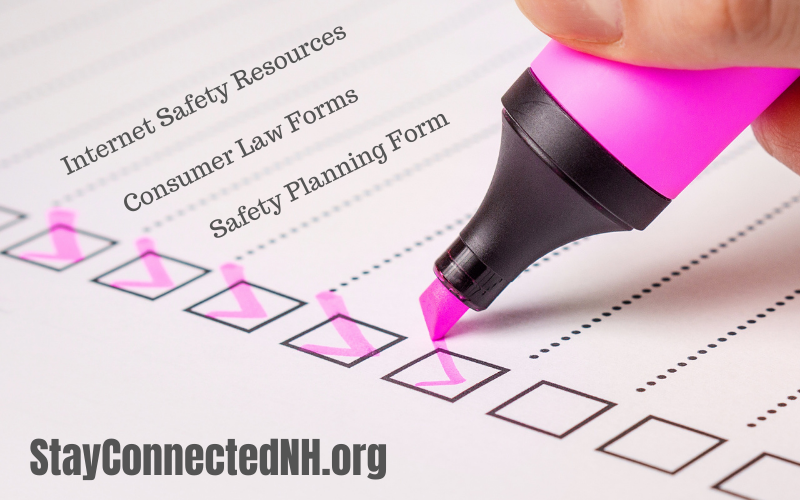Original Post | National Institute on Aging
People with Alzheimer’s disease often have problems managing their money. In fact, money problems may be one of the first noticeable signs of the disease.
Early on, a person with Alzheimer’s may be able to perform basic tasks, such as paying bills, but he or she is likely to have problems with more complicated tasks, such as balancing a checkbook. As the disease gets worse, the person may try to hide financial problems to protect his or her independence. Or, the person may not realize that he or she is losing the ability to handle money matters.
Signs of Money Problems
Look for signs of money problems such as trouble counting change, paying for a purchase, calculating a tip, balancing a checkbook, or understanding a bank statement. The person may be afraid or worried when he or she talks about money. You may also find:
- Unpaid and unopened bills
- Lots of new purchases on a credit card bill
- Strange new merchandise
- Money missing from the person’s bank account
A family member or trustee (someone who holds title to property and/or funds for the person) should check bank statements and other financial records each month to see how the person with Alzheimer’s disease is doing and step in if there are serious concerns. This can protect the person from becoming a victim of financial abuse or fraud.
Take Steps Early
Many older adults will be suspicious of attempts to take over their financial affairs. You can help the person with Alzheimer’s feel independent by:
- Giving him or her small amounts of cash or voided checks to have on hand
- Minimizing the spending limit on credit cards or having the cards cancelled
- Telling the person that it is important to learn about finances, with his or her help
To prevent serious problems, you may have to take charge of the person’s financial affairs through legal arrangements. It’s important to handle the transfer of financial authority with respect and understanding.
You can get consent to manage the person’s finances via a durable power of attorney for finances, preferably while the person can still understand and approve the arrangement. You can also ensure that the person finalizes trusts and estate arrangements. For more information, see Legal and Financial Planning for People with Dementia.
Guard Against Financial Abuse and Fraud
People with Alzheimer’s may be victims of financial abuse or scams by dishonest people. Sometimes, the person behind the scam is a “friend” or family member. Telephone, email, or in-person scams can take many forms, such as:
- Identity theft
- Get-rich-quick offers
- Phony offers of prizes or home or auto repairs
- Insurance scams
- Health scams such as ads for unproven memory aids
- Threats
Look for signs that the person with Alzheimer’s may be a victim of financial abuse or fraud:
- There are signatures on checks or other papers don’t look like the person’s signature.
- The person’s will has been changed without permission.
- The person’s home is sold, and he or she did not agree to sell it.
- The person has signed legal papers (such as a will, power of attorney, or joint deed to a house) without knowing what the papers mean.
- Things that belong to you or the person with Alzheimer’s, such as clothes or jewelry, are missing from the home.
If you think a person with Alzheimer’s may be the victim of a scam, contact your local police department. You can also contact the State consumer protection office or Area Agency on Aging office.
Read about this topic in Spanish. Lea sobre este tema en español.
For More Information About Managing Money Problems in Alzheimer’s
NIA Alzheimer’s and related Dementias Education and Referral (ADEAR) Center
800-438-4380 (toll-free)
adear@nia.nih.gov
www.nia.nih.gov/alzheimers
The NIA ADEAR Center offers information and free print publications about Alzheimer’s and related dementias for families, caregivers, and health professionals. ADEAR Center staff answer telephone, email, and written requests and make referrals to local and national resources.
Alzheimers.gov
www.alzheimers.gov
Explore the Alzheimers.gov portal for information and resources on Alzheimer’s and related dementias from across the federal government.
AARP
888-687-2277 (toll-free)
877-434-7598 (TTY/toll-free)
member@aarp.org
www.aarp.org/home-family/caregiving/
Eldercare Locator
800-677-1116 (toll-free)
eldercarelocator@n4a.org
https://eldercare.acl.gov
National Center on Elder Abuse
855-500-3537 (toll-free)
ncea-info@aoa.hhs.gov
https://ncea.acl.gov
National Elder Fraud Hotline
833-FRAUD-11 for 833-372-8311
https://stopelderfraud.ovc.ojp.gov
This content is provided by the NIH National Institute on Aging (NIA). NIA scientists and other experts review this content to ensure it is accurate and up to date.









